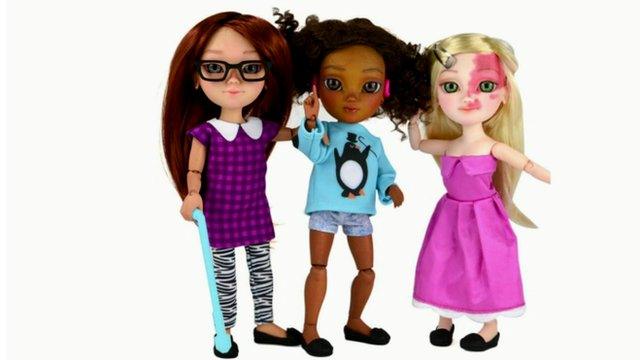'My doll with a hearing aid looks like me'
- Published
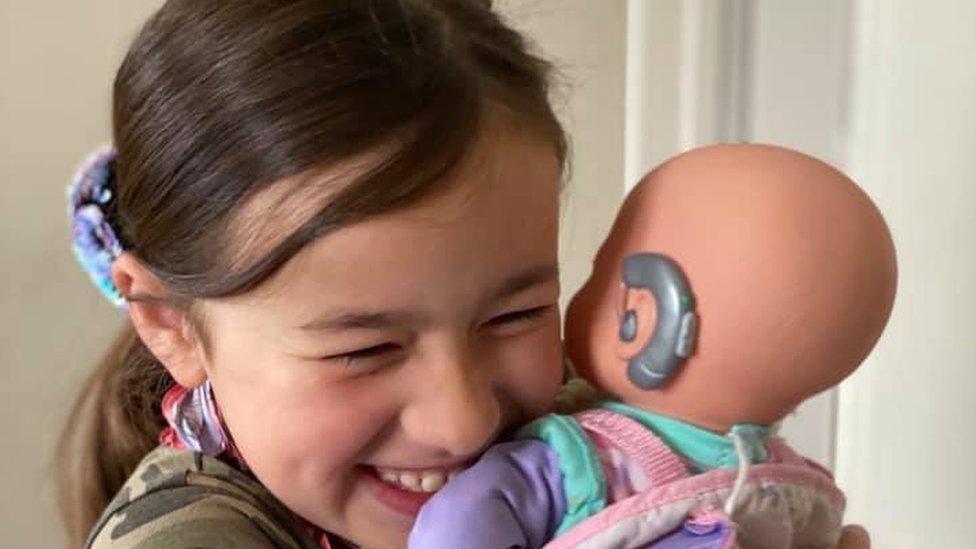
Heidi Evans bought her doll, also named Heidi, with her birthday money from her aunts and uncles
A mother who set up a not-for-profit company adapting toys to represent all disabilities has told how it is "empowering" for children.
Clare Tawell started Bright Ears UK to sell dolls with hearing aids after her daughter had one fitted as a baby.
The former Milton Keynes Hospital radiographer said she had not been able to find any others on the market.
"I'm not doing it to make money," she said. "This is just fulfilling the need that isn't being met."
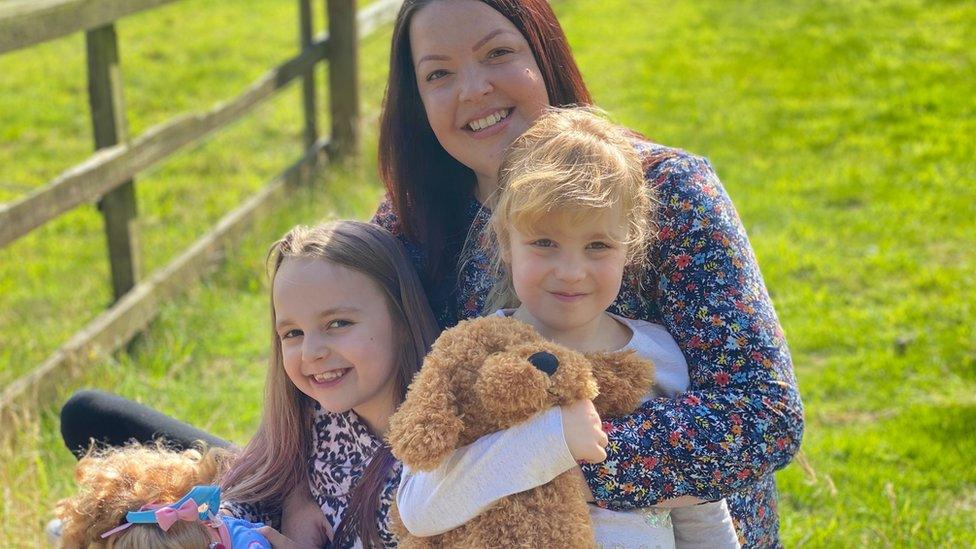
Clare Tawell was inspired to start her company by Matilda (right) after she played with her sister Evelyn's dolls but could not find one with a hearing aid
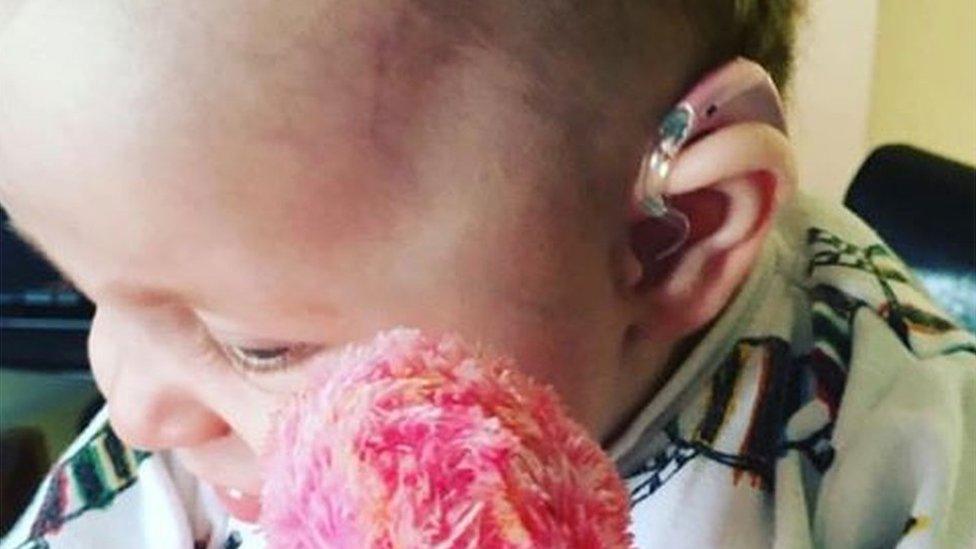
Matilda Tawell had hearing aids fitted at about three months old
Mrs Tawell had wanted to buy her four-year-old daughter, Matilda, who was born deaf, a doll featuring a hearing aid but "couldn't find anything".
"A couple of friends through the National Deaf Children's Society asked me to make one for them and by word of mouth, it kind of snowballed," she said.
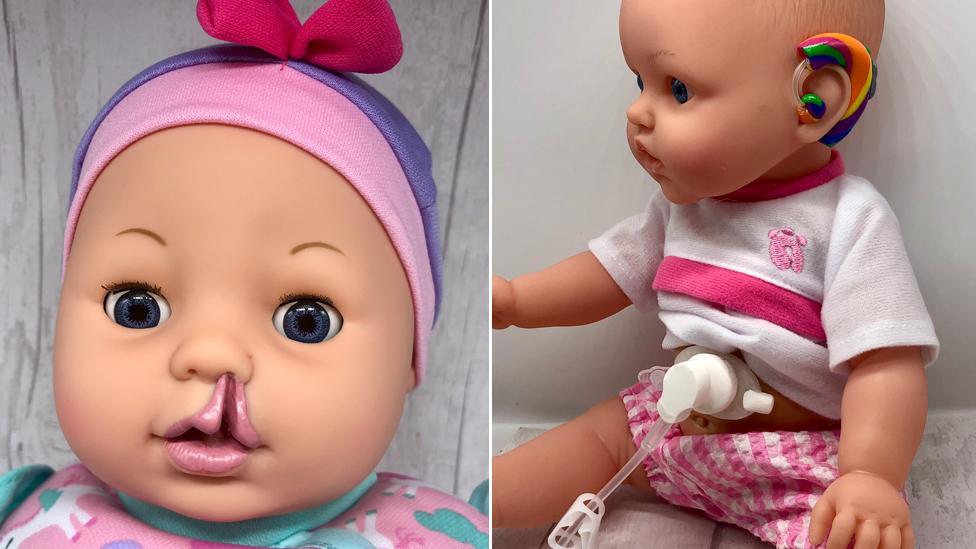
The "bespoke" dolls can also feature cleft palates and feeding tubes and range from £25 to about £30
Ceri Evans, from Bedford, said one of the dolls had "transformed" her eight-year-old daughter, Heidi.
Heidi, who is deaf in one ear, wanted a doll with a hearing aid for her birthday in June.
Mrs Evans, 42, said: "I didn't realise how different she felt about herself in comparison to others."
When it arrived, it "completely transformed her", giving her a new inner-confidence, said Mrs Evans.
Heidi said: "She looks like me and she has the same hearing aid."
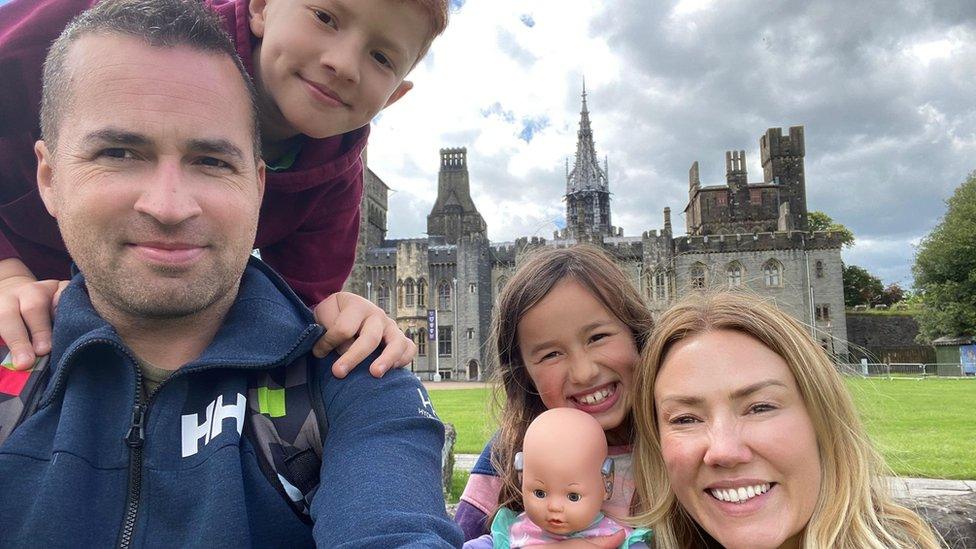
Heidi the doll now goes "everywhere" with the Evans family, including on a holiday to Wales
Mrs Tawell, who is also training to be a sign language interpreter, said: "I would like it if toy manufactures could take my idea and run it with and make it more main stream and accessible.
"I know first-hand how special and empowering these dolls can be to children."
After setting up the business in 2017, she now makes dolls with feeding tubes, cleft palates and stoma bags.
Orders have come in from as far as America and Australia, said Mrs Tawell, from Lidlington, Bedfordshire.
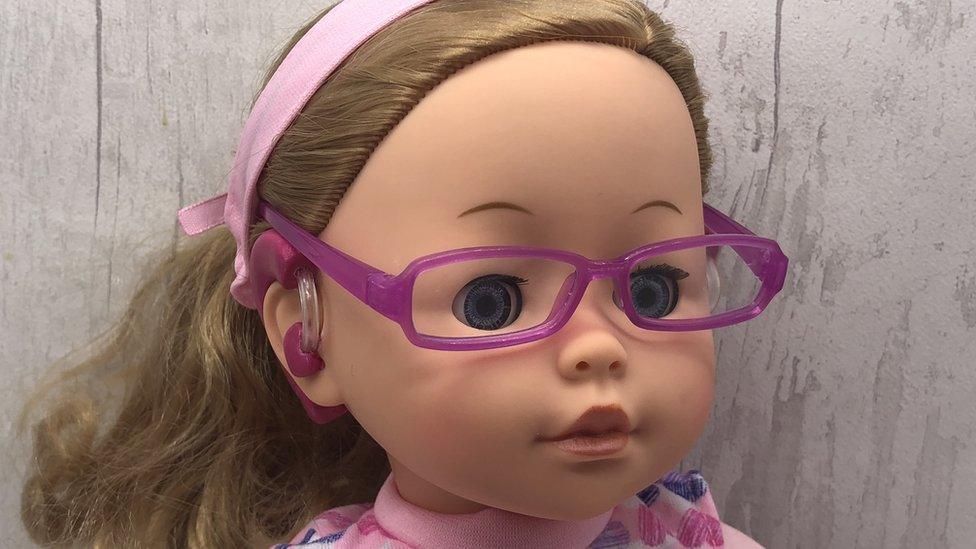
"Children want to be represented," Clare Tawell said
Rosie Eggleston, from the National Deaf Children's Society said: "Deafness is often misunderstood and deaf children usually grow up knowing few people with first-hand experience of what they're going through.
"It's so important for them to see deafness represented in as many areas as possible, because it helps them understand that there are other people just like them."

Find BBC News: East of England on Facebook, external, Instagram, external and Twitter, external. If you have a story suggestion email eastofenglandnews@bbc.co.uk
.
- Published27 July 2020
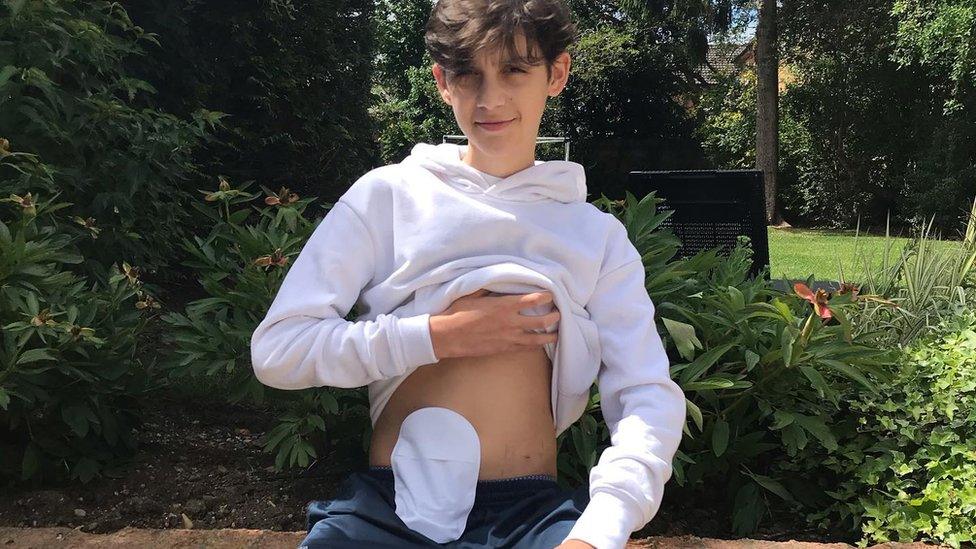
- Published26 March 2019
- Published3 January 2019
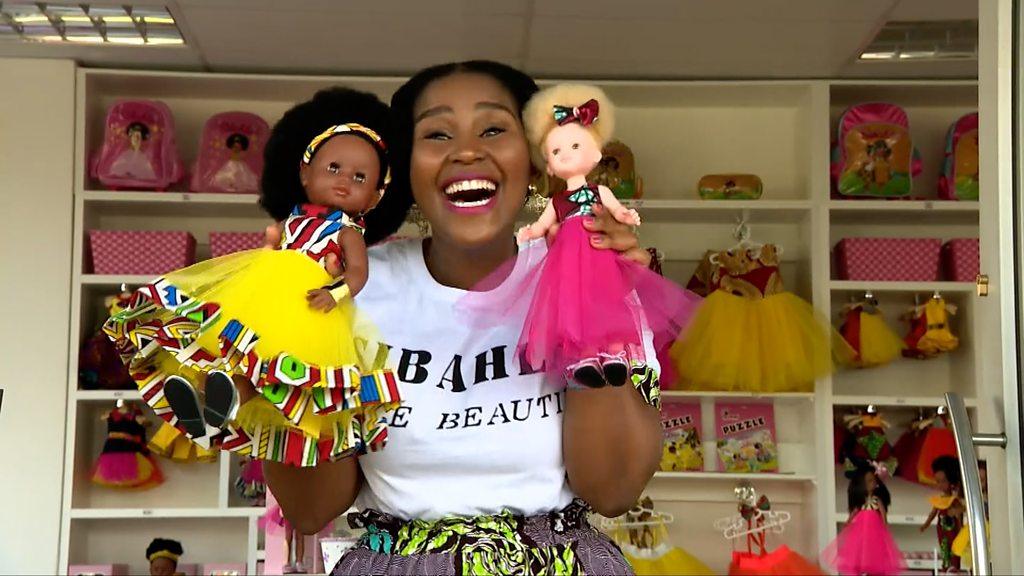
- Published4 July 2018
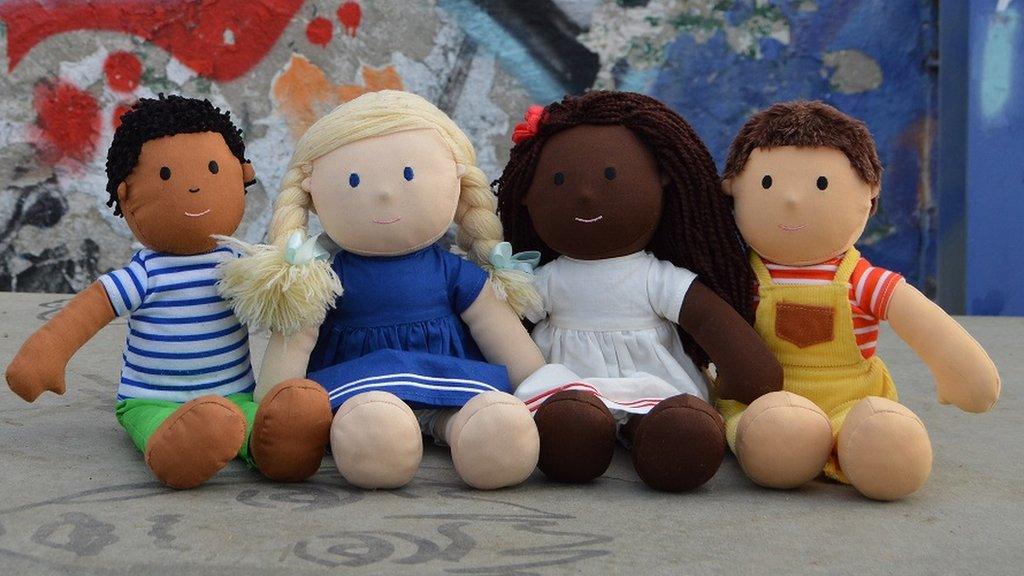
- Published28 June 2018
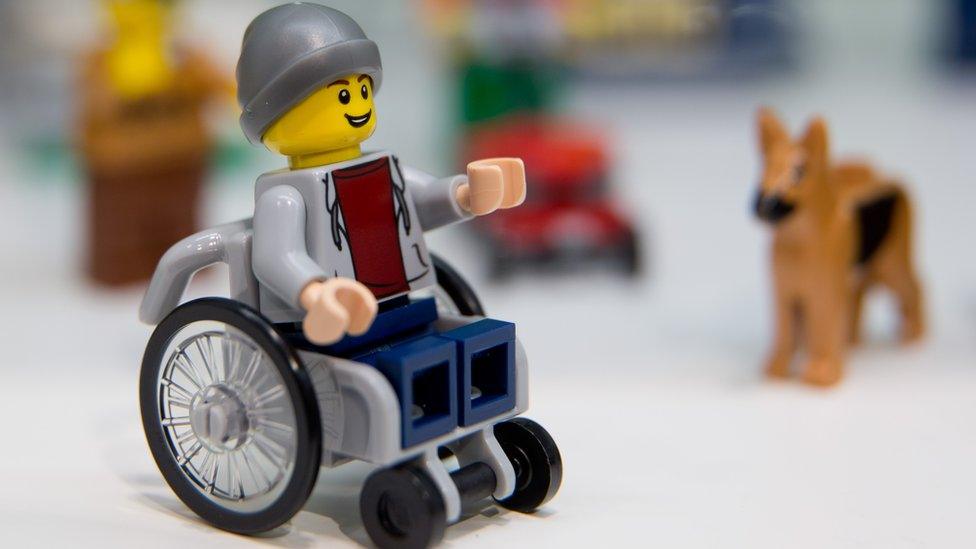
- Published26 May 2015
